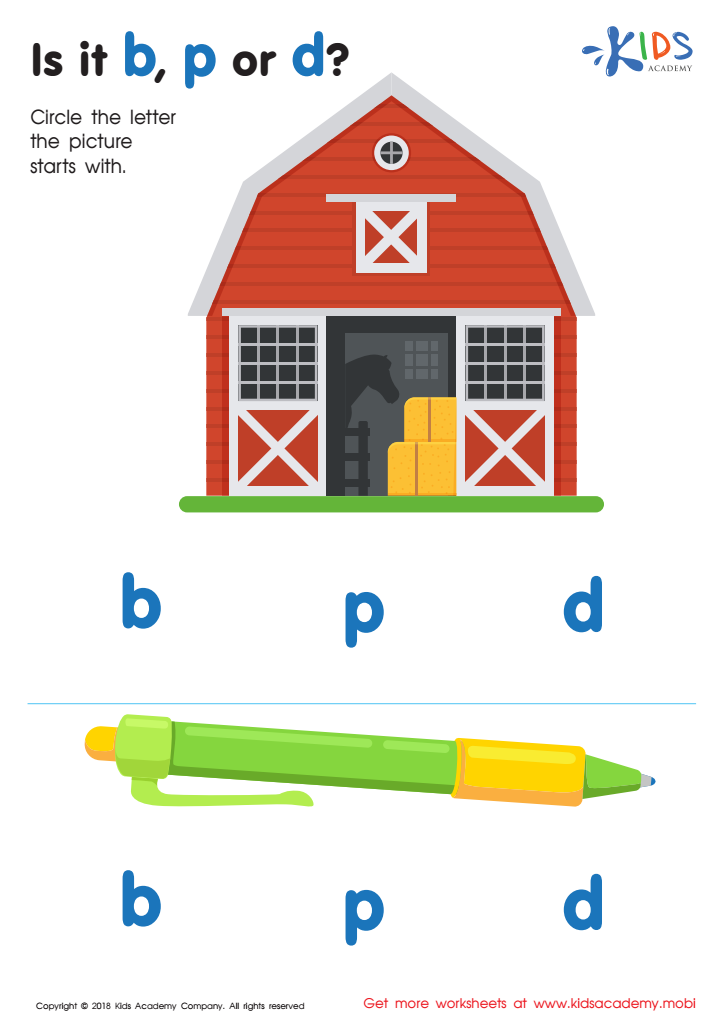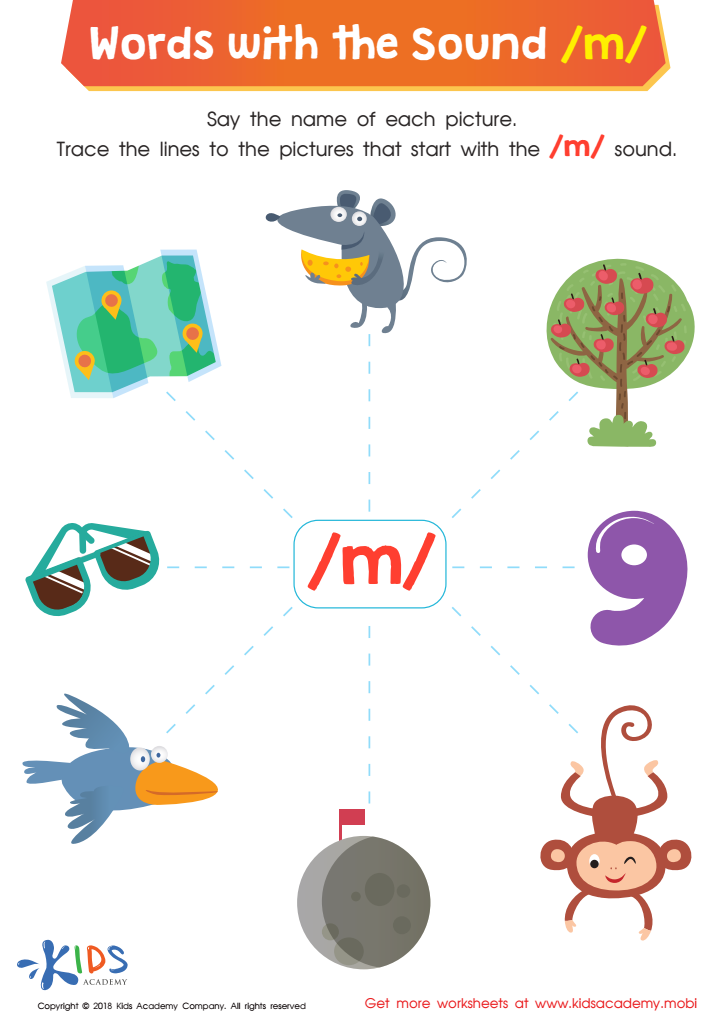Phonics practice Beginning Sounds Worksheets for 6-Year-Olds
5 filtered results
-
From - To
Dive into the world of phonics with our engaging Beginning Sounds Worksheets, crafted especially for 6-year-olds. These worksheets from Kids Academy are designed to make learning fun, mixing playful activities with educational value. Perfectly tailored to match young learners’ abilities, they help children recognize and pronounce initial sounds of words, laying a strong foundation for reading and spelling. With vibrant illustrations and interactive tasks, kids stay motivated and eager to learn. Ideal for both classrooms and at-home practice, watch as your child’s phonics skills blossom, setting the stage for ongoing literacy success! Try our worksheets today and spark your child’s love for learning.


Twin Onset Worksheet


Is it b, p or d? Worksheet


Words with sound p Reading Worksheet


Words with sound f Reading Worksheet


Words with Sound M Reading Worksheet
Phonics practice focusing on beginning sounds is fundamental for 6-year-olds because it lays the cornerstone for reading and writing proficiency. At this developmental stage, children are transitioning from recognizing letters to deciphering how these symbols correspond to sounds, an essential skill for fluent reading. Establishing a robust understanding of beginning sounds helps children decode words more efficiently, promoting smoother and more confident reading experiences.
Parents and teachers play a crucial role by providing consistent opportunities for phonics practice. This support can foster a child's confidence and enthusiasm for learning, transforming reading into an enjoyable and rewarding activity. Additionally, proficiency in identifying beginning sounds enhances a child's ability to spell words correctly, as they begin associating letters with their auditory counterparts.
Moreover, early mastery of phonics can boost overall academic performance. Strong reading skills are closely linked to success in other subjects, as textbooks and instructions across the curriculum rely heavily on the written word. By investing time in phonics practice, parents and teachers equip children with the fundamental tools required for lifelong learning. The benefits extend beyond academics, as literacy skills also contribute to effective communication, critical thinking, and enhanced imagination, enriching the child's evolving identity and interactions with the world.
 Assign to My Students
Assign to My Students















